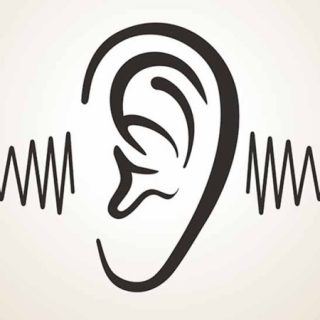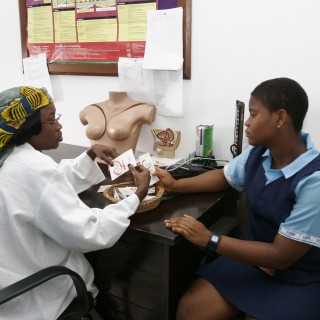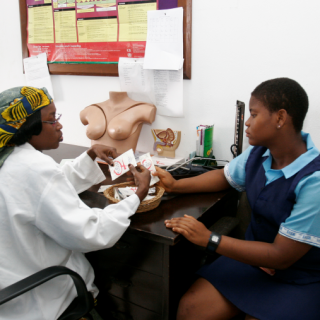Personal hygiene is the first step to grooming and good health. Elementary cleanliness is common knowledge. Neglect causes problems that you may not even be aware of. Many people with bad breath are blissfully aware of it. Some problems may not be your fault at all, but improving standards of hygiene will control these conditions. Dandruff is a case in point. More often than you know, good looks are the results of careful and continuous grooming.
Every external part of the body demands a basic amount of attention on a regular basis. Here are some grooming routines and some complaints associated with neglect.
Menstrual Hygiene
No woman feels completely comfortable when she has her period. If it is not premenstrual tension or stomach cramps it is the problem of dealing with the menstrual flow.
Technology offers sanitary pads, tampons or menstrual cups or caps to deal with the flow. The user has to decide what suits her best. Absorbent pads may be noticeable in form fitting clothes. They cause some soreness on the inner thighs.
Some women prefer tampon to external pads. A plug of absorbent cotton or gauze is inserted inside. But these should not be left unchanged beyond six hours. Some brands state that tampons left unchanged for more than 12-18 hours increases the possibly to toxic shock.
It is not clear what causes toxic shock. But there seems to be a link between tampons and Toxic Shock Syndrome (TSS). Approximately 1% of all menstruating women carry the bacteria in question (Staphylococcus aureus) in their vagina. Absorbent tampons provide the medium for them to grow and spread infection.
The menstrual cup (or cap), is inserted within and collects the flow and can be emptied, cleaned and re used.
Whatever the preference, washing is important. These need be no taboo about bath on these days. Some people have the problem of odour during menstruation. Cleanliness and change of pad/tampon as often as is necessary reduces this problem. It is not advisable to use perfumed pads or tampons in fact, using powder in the genital area is not recommended.
Urinary Infection
Females are especially prone to this infection. This happens when bacteria travel up the urethra and starts breeding there. Changes of urinary infection are higher during pregnancy and after major surgery. This infection causes pain or a burning sensation during urination. Sometimes the urine is discolored. Itching, frequent urination, fever and chills can also result from urinary infection. Though not a serious problem it can be rather an irritating and an awkward one. It is easy to catch this infection when toilets are not clean or when too many people share toilet facilities.
To avoid this infection improve overall standards of hygiene: both, regarded toilets and personal parts. Wash or wipe front to back after urinating or defecating. Remember this when wiping or washing babies too, as a general rule. Do not wear tight fitting synthetic underwear.
Drink plenty of water. Do not hold back when you have tendency to urinate.
Pinworms
Pinworms are about a quarter of an inch long. And they can cause plenty of discomfort. The worms come out of the anal opening n to lay eggs at night. This leads to intense itching in the area. Disturbed sleep, mild pain and diarrhea are possible consequences.
Children are especially prone to this complaint. The urge is to scratch this area. When scratching, eggs stick to the hand, and under the nails and infects anything the person touches. The eggs can pass through air or by contact with infected food or bed linen to others who share the premises. The eggs are not affected by disinfectant s and remain active in the dust for a long period.
A doctor has to be consulted to rid the worm infestation. Bed clothes, undergarments and nightwear of the infected person must be washed thoroughly, if possible in hot water. Sometimes all members of the family are advised to take deworming medication when one member is affected. Scrubbing hands well with soap before eating should check the problem.
Perspiration
The body perspires to keep the body temperature from rising. Sweat is 99% water. It has a small quantity of urea, salt and some other compounds. If the body perspires more, in hot weather, a slight increase in the intake of common salt is advised, to make good what is lost through perspiration.
Excessive perspiration can lead to the scaling of the skin or inflammation (Dermatitis). Usually this is no cause for worry. Some people sweat more, some less due to hereditary and body composition factors. Excessive perspiration is also a symptom of diabetes, anemia and hyperthyroidism.
Athletes Foot
The skin becomes scaly. There are sores or blisters between toes. Often it spread to the soles.
This infection is caused by a fungus. This breeds in warm wet places. This is a minor irritation and often disappears by itself. But sometimes these cracks and sores become the site for other infections.
Proper foot care can alleviate the condition. Rub off peelings gently. Wash feet well and apply powder. A mild fungicidal ointment at bedtime will help. Keep feet exposed. If you have to wear shoes, wear cotton socks.
Sometimes the blisters begin to ooze. Then soak feet in ma potassium permanganate solution of recommended strength. Soak your feet in a warm bath for 10 minutes and then apply calamine lotion.
References







You must be logged in to post a comment.